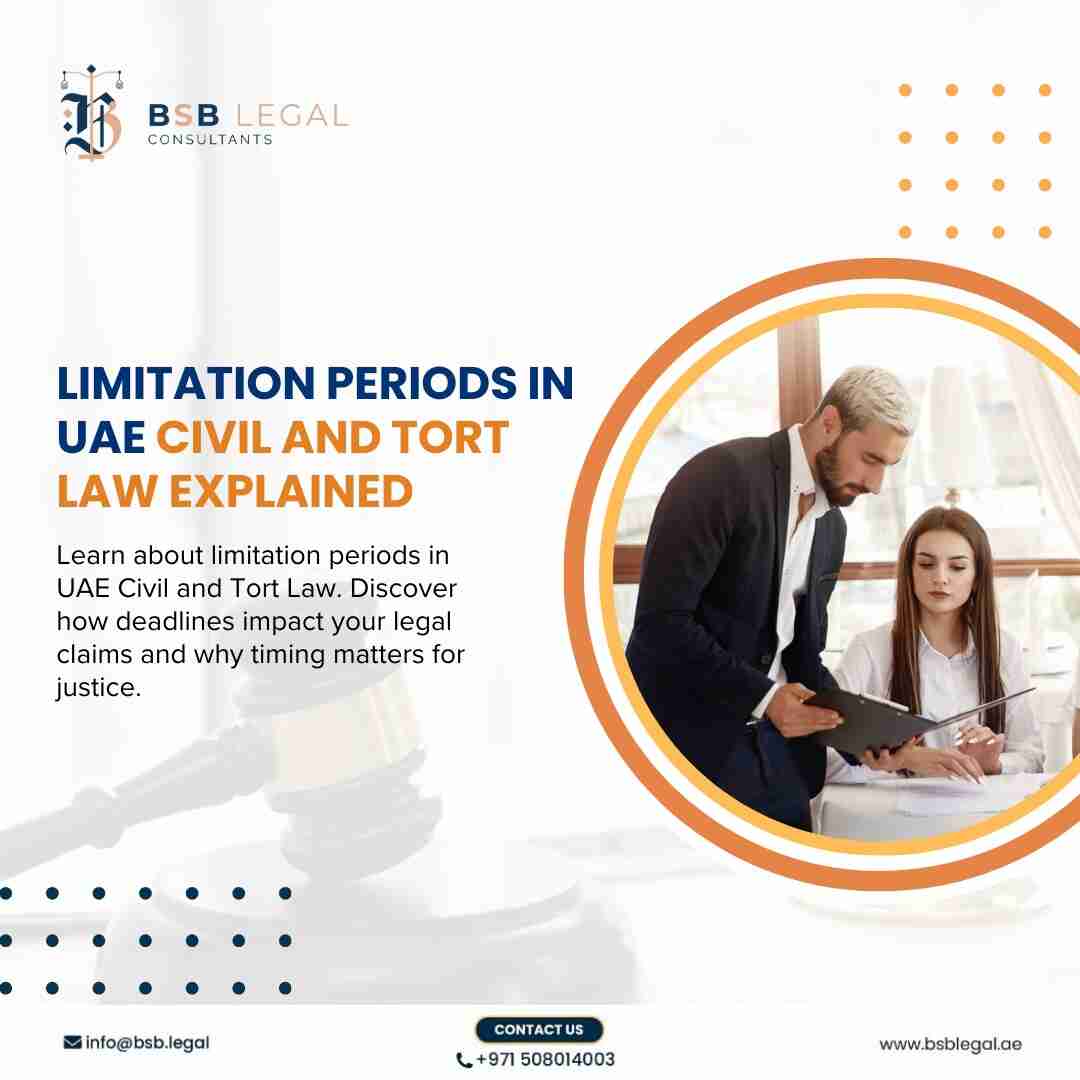


Learn about limitation periods in UAE Civil and Tort Law. Discover how deadlines impact your legal claims and why timing matters for justice.
Timing is everything. Imagine a scenario where a legitimate claim, otherwise strong and just, is dismissed merely because it was not presented within the prescribed time frame. The concept of the limitation period in the UAE legal system is akin to the ticking clock. Let’s delve into the intricacies of this temporal dimension, exploring its application in both UAE civil and tort law.
In the UAE, the limitation period is not merely a technical rule but a fundamental aspect of the legal system. It signifies the time window within which a claim must be submitted before a court, ensuring that justice is sought within a reasonable timeframe. Failing to adhere to this temporal framework can lead to the rejection of a claim, emphasizing the importance of timely legal action.
The UAE law recognizes diverse claims, each with its unique limitation period. For general contracts, the clock ticks for 15 years, emphasizing the endurance of contractual obligations. However, in the realm of commercial contracts, this period shortens to 10 years. Construction contracts, with potential implications for building integrity, hold a ten-year limitation period or longer if agreed upon by the parties. In the case of employment disputes, recent regulatory changes dictate that either party must submit a labor complaint within thirty days of a breach. This change aims to streamline dispute resolution in the employment sphere, offering a prompt avenue for resolving workplace grievances.
UAE law meticulously governs limitation periods, incorporating specific rules to ensure fairness and practicality. The period initiates from the day the debt becomes due or when claim conditions materialize. The calculation is in days, excluding the first day, with adjustments for official holidays.
Importantly, the limitation period is not rigid; it can be interrupted with lawful excuses, during legal proceedings, or upon acknowledgment by the debtor. However, parties cannot extend the limitation period beyond what is prescribed by law. Understanding these rules becomes paramount in navigating the intricacies of the legal timeframe.
The concept of limitation periods in tortious liability in the UAE traces its roots to Islamic scholars’ doctrines, particularly Al Maliki and Al Hanafi. The UAE, recognizing the value of these principles, incorporates them into its legal system, emphasizing the need for balance and fairness in resolving disputes.
In tortious liability, the clock starts ticking when the victim becomes aware of the injury and the identity of the responsible party. This awareness is a critical factor, representing the starting point for the three-year limitation period. Additionally, an action for damages is entirely barred after 15 years from the occurrence of the prejudicial act.
Recognizing the complexity of certain cases, the law introduces exceptional rules. If a civil claim arises from a criminal offense, the action for damages may persist even after the standard limitation period if the criminal action is still pending. This provision underscores the interplay between civil and criminal aspects of legal disputes.
Furthermore, the law allows for the suspension of the limitation period when there is a lawful excuse preventing the claim of the right. This acknowledges the nuances of individual cases, ensuring a fair evaluation of circumstances that may impede timely legal action.
In the context of tortious liability, the term “knowledge” holds pivotal significance. It refers not only to the awareness of the injury but also to the identification of the responsible party. The Dubai Court of Cassation has clarified that this awareness entails the actual knowledge of the damage and the person responsible. The calculation of the limitation period commences when both elements—knowledge of the injury and the identity of the responsible party—are present. This interpretation reinforces the precision required in understanding the initiation of the limitation period.
The concept of lawful excuse introduces an element of flexibility, recognizing that circumstances beyond an individual’s control may hinder the timely filing of a claim. Article 481 of the Civil Code stipulates that the prescription barring the hearing of a case is suspended when a lawful excuse prevents the claim of the right. The determination of what constitutes a lawful excuse rests solely with the trial judge, who evaluates surrounding facts, circumstances, and information. This discretionary approach ensures that the law accommodates genuine impediments to legal action.
